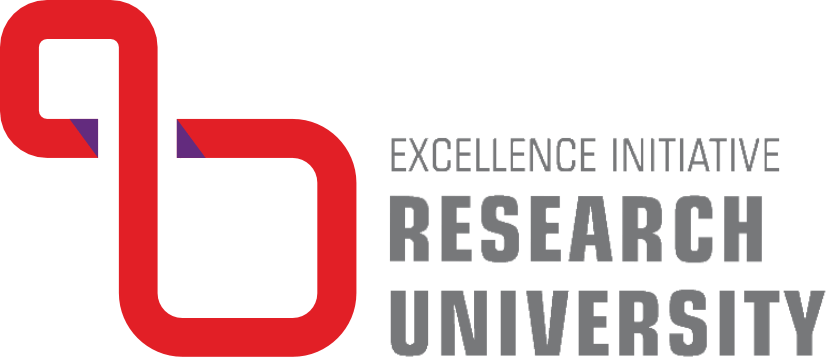EcoLab
About the Laboratory
Coordinators: dr hab. Julia Fiedorczuk-Glinecka, dr hab. Gerardo Beltrán Cejudo
Interdisciplinary Ecopoetological Laboratory is conceived as a series of encounters with outstanding poets, artists and scholars whose creative and/or artistic activities engage the problematics of ecopoetics, understood broadly as a field of enquiry into human and non-human ways of worldmaking in the Anthropocene. Poetics is understood, in keeping with the definition proposed by Aristotle, as poiesis, that is to say, making through in-forming. It is precisely formal experimentation that interests us most, especially in so far as it responds to the challenges posed by the planetary crisis.The current crisis questions the received anthropocentric definitions of creativity, agency and sense. The aim of the Laboratory is to examine alternative, more adequate ways of articulating these issues which are beginning to emerge in contemporary science, art and, last but not least, poetry. We wish to build a platform for a creative exchange of ideas in the outlined area.
The Laboratory will host two guests each year of the project. So far our invitation has been accepted by Lynn Keller (University of Wisconsin-Madison), the Pulitzer-winning poet Forrest Gander (Brown University) and the poet-researcher Adam Dickinson (Brock University, Canada). Each visit will last from 1 to 2 weeks. During this time, the guests will give talks and conduct workshops for the scholars engaged in the Studies in Non-Anthropocentric Cultural Subjectivity project as well as for the faculty and students at Warsaw University. Poets will also give readings for a wider audience.
Lynn Keller (University of Wisconsin-Madison), 2021
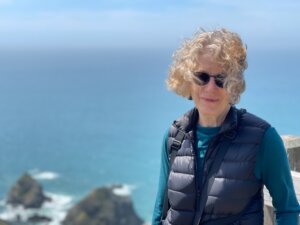
© Lynn Keller
Lynn Keller’s research interests include post-war American poetry, experimental poetics of recent decades as well as ecocriticism. Much of her work has focused on innovative writing by women. Her published books include: Forms of Expansion: Recent Long Poems by Women (University of Chicago Press, 1997), Thinking Poetry: Readings in Contemporary Women’s Exploratory Poetics (University of Iowa Press, 2010) and Recomposing Ecopoetics: North American Poetry of the Self-Conscious Anthropocene (University of Virginia Press, 2018). She declares: “While linguistically innovative work has been at the center of my research, I am committed to reading broadly in the field of contemporary poetry and to cultivating in my students the varied reading skills necessary to appreciate varied poetics.” In recent years, combining her interest in experimental poetry with her engagement in environmental issues, Keller has contributed significantly to the development of ecopoetics. Lynn Keller is a professor of poetry and environmental humanities at the University of Wisconsin-Madison.
On May 31st (18 CET) 2021 Lynn Keller gave a talk entitled: “Meditations in an Emergency: The Poetics of the Self-Conscious Anthropocene.” Watch the video.
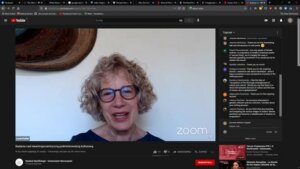
© Julia Fiedorczuk
Forrest Gander (Brown University), 2021
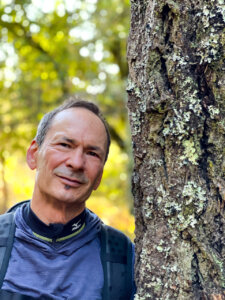
© Forrest Gander
Forrest Gander was born in California’s Mojave Desert, grew up in Virginia, studied geology and literature (San Francisco State University). Lived briefly in Mexico, then in Arkansas, where his poetry – informed by his knowledge of geology – turned its attention to the landscape as a source of action. After a period in Providence, Rhode Island (where he taught at Brown University) Gander moved back to California where he now resides.
Gander’s newly released book, Twice Alive (2021), addresses the exigencies of our historical moment and the intimacies, personal and environmental, that bind us to others and to the world. Be With (2018), winner of the Pulitzer Prize, was a lamentation for the poet’s deceased wife the poet C. D. Wright. Core Samples from the World (2011) – collaboration studded with the work of three great photographers, Graciela Iturbide, Raymond Meeks, and Lucas Foglia—was a finalist for the Pulitzer Prize and the National Book Critics Circle Award. Gander’s other collections include Eye Against Eye, with photographs by Sally Mann; Torn Awake; and Science & Steepleflower.
Gander is also a highly esteemed translator from he Spanish, a novelist, an essayist, and an editor of poetry anthologies. He has translated mostly Mexican women poets (Pura López Colomé, Coral Bracho) but also the Bolivian author Jaime Saenz’s and Pablo Neruda.
On June 7th (18 CET) 2021 Gander read from his work and took questions from the public. The meeting was moderated by Julia Fiedorczuk-Glinecka. Watch the video.
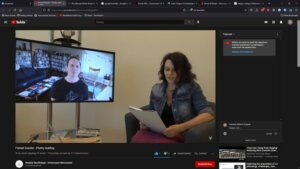
© Julia Fiedorczuk-Glinecka
Yásnaya Aguilar, 2022
In the territory of what is now known as Mexico, 68 languages are spoken in addition to Spanish. All 68 are recognised as official languages, but their situation is very different from the dominant Spanish. Counteracting the hegemony of a single, colonial language is an urgent task: the ongoing eradication of linguistic diversity destroys indigenous cultures and accelerates environmental destruction. We have invited two outstanding poets and activists, Yásnaya Aguilar and Martín Tonalmeyotl, to discuss the situation of indigenous languages of Mexico, and to reflect on these languages’ potential to question the anthropocentrism of mainstream western thinking, the discussion helped to expose the limits of western environmentalism.
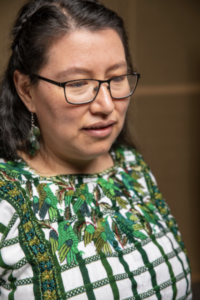
© Yásnaya Aguilar
Yásnaya Aguilar (1981), born in Ayutla Mixe in the state of Oaxaca, is a linguist, writer, translator and researcher. She is also an activist for linguistic rights and an environmental activist. Her mother tongue is Ayuujk (or Mixe), belonging to the Mixe-Zoque linguistic family. Mixe has six linguistic variants and is spoken by over 130,000 people in the state of Oaxaca.
Martín Tonalmeyotl, 2022
In the territory of what is now known as Mexico, 68 languages are spoken in addition to Spanish. All 68 are recognised as official languages, but their situation is very different from the dominant Spanish. Counteracting the hegemony of a single, colonial language is an urgent task: the ongoing eradication of linguistic diversity destroys indigenous cultures and accelerates environmental destruction. We have invited two outstanding poets and activists, Yásnaya Aguilar and Martín Tonalmeyotl, to discuss the situation of indigenous languages of Mexico, and to reflect on these languages’ potential to question the anthropocentrism of mainstream western thinking, the discussion helped to expose the limits of western environmentalism.
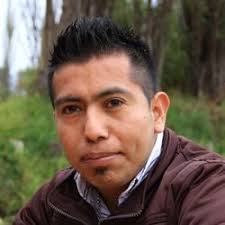
© Martín Tonalmeyotl
Martín Tonalmeyotl (Martín Jacinto Meza, b. 1983) is a Nahua poet, narrator, translator and photographer originally from Atzacoaloya de Chilapa de Álvarez, in the state of Guerrero.
Tonalmeyotl studied Hispano-American Literature at the Autonomous University of Guerrero and Linguistics at the Center for Research and Higher Studies in Social Anthropology. He is currently a doctoral student at the Autonomous University of Puebla, while working as a farmer and a Nahuatl language teacher. His poems, stories, articles and photographs have been published internationally in print and digital media. He is the author of several books of poetry, including Tlalkatsajtsilistle/Ritual de los olvidados (2016) and Istitsin ueyeatsintle/Uña mar (2019). Tonalmeyotl has also served as an editor of several anthologies of poetry in indigenous languages, including: Xochitlajtoli: Contemporary Poetry in Native Languages of Mexico [32 poets from 16 languages] (2019) and Flor de siete pátalos [seven Mexican women poets from seven languages] (2019).
Issue of the literary magazine “Wizje” devoted to EcoLab (02.2022)
A new issue of the online literary magazine Wizje has just been published, with a special part devoted to the Ecopoetological Laboratory. We invite you to read the texts of the former and future guests of the EcoLab: Forrest Gander, Adam Dickinson (with whom we will meet live in Warsaw in less than two weeks, 23 May 2022), Esther Kinsky, Brenda Hillman, Zoë Skoulding and Yásnaya Aguilar. Polish translations were made by members and friends of our project.
Forrest Gander (Brown University), 2022

© Forrest Gander
Forrest Gander was born in California’s Mojave Desert, grew up in Virginia, studied geology and literature (San Francisco State University). Lived briefly in Mexico, then in Arkansas, where his poetry – informed by his knowledge of geology – turned its attention to the landscape as a source of action. After a period in Providence, Rhode Island (where he taught at Brown University) Gander moved back to California where he now resides.
Gander’s newly released book, Twice Alive (2021), addresses the exigencies of our historical moment and the intimacies, personal and environmental, that bind us to others and to the world. Be With (2018), winner of the Pulitzer Prize, was a lamentation for the poet’s deceased wife the poet C. D. Wright. Core Samples from the World (2011) – collaboration studded with the work of three great photographers, Graciela Iturbide, Raymond Meeks, and Lucas Foglia—was a finalist for the Pulitzer Prize and the National Book Critics Circle Award. Gander’s other collections include Eye Against Eye, with photographs by Sally Mann; Torn Awake; and Science & Steepleflower.
Gander is also a highly esteemed translator from he Spanish, a novelist, an essayist, and an editor of poetry anthologies. He has translated mostly Mexican women poets (Pura López Colomé, Coral Bracho) but also the Bolivian author Jaime Saenz’s and Pablo Neruda.
On May 20th (18 CET) 2022 Gander read from his work and took questions from the public. The meeting was moderated by Julia Fiedorczuk-Glinecka. Watch the video.
Adam Dickinson (Brock University, Canada), 2022
In May 2022 the Eco Lab hosted a visit by an internationally-renowned poet and researcher Adam Dickinson. A literature and creative writing professor at Brock University, Canada, Dickinson is the author of four books of poetry, the latest of which, Anatomic (Coach House Books), won the Alanna Bondar Memorial Book Prize from the Association for Literature, Environment, and Culture in Canada.
Anatomic is a radically transdisciplinary work, involving the results of chemical and microbial testing on the poet’s body, used as a starting point for a poetic reflection on how „the outside writes the inside” in the Anthropocene. This experiment in science and poetics was at the center of an artist’s talk titled THE WORK OF ART: METABOLISM, ECOPOETICS, AND THE LABORATORY delivered by the poet on May 23rd at the Department of Modern Languages, University of Warsaw. The lecture articulated what the author refers to as „metabolic poetics”, addressing the circulation of energies, substances and meanings in an individual body as well as in the globalized world. The recording of the talk can be watched on our youtube channel.
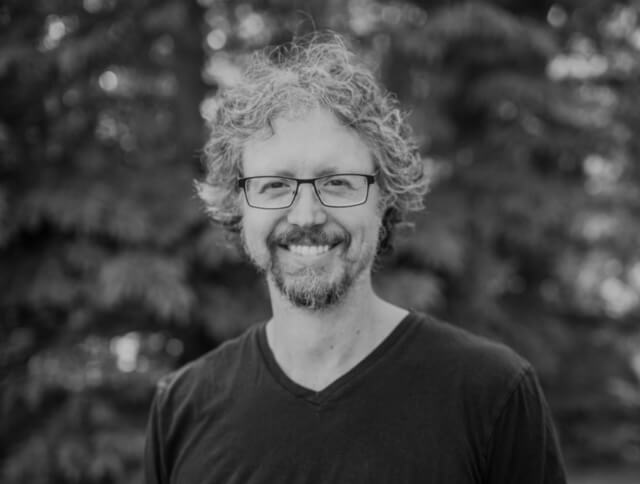
© Adam Dickinson
Zoë Skoulding (University of Bangor, Wales), 2023
In May 2023 the Eco Lab hosted a visit by a poet and scholar Zoë Skoulding. A literature and creative writing professor at the University of Bangor, Wales, Skoulding is the author of seven books of poetry, including A Marginal Sea (2021) and Footnotes to Water (2019), which was a Poetry Book Society Recommendation and won the Wales Book of the Year Poetry Award 2020. Her critical work includes two monographs, Contemporary Women’s Poetry and Urban Space: Experimental Cities (2013), and Poetry & Listening: The Noise of Lyric (2020).
Zoë Skoulding is interested in translation, sound and ecology. Her exploratory work, inspired by European and American avant-garde traditions as well as by feminist poetics, is both lyrical and experimental, playful and seriously engaged. During her visit, prof. Skoulding gave a talk titled „Resounding bodies: ecopoetics, listening and translation” in which she reflected on how experimental practices of poetry and translation can enable different kinds of listening – and therefore new kinds of community – across the boundaries of languages, species, and forms of knowledge. The recording of the lecture can be watched on our youtube chanel.
In subsequent days prof. Zoë Skoulding conducted a workshop for the members of the Non-Anthropocentric Cultural Subjectivity research team and read for her Polish fans at the International Poetry Festival Silesius in Wrocław. During the workshop we discussed her essay „All the birds had called a conference”: Songs of the Emergency, soon to be published in the volume: Places that the Map Can’t Contain: Poetics in the Anthropocene (edited by Julia Fiedorczuk and Paweł Piszczatowski).
This year’s Eco Lab’s special attraction was an early morning urban birdwatching walk led by prof. Przemysław Chylarecki (Polish Academy of Sciences).
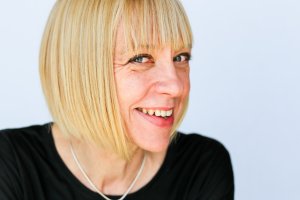
© Zoë Skoulding
